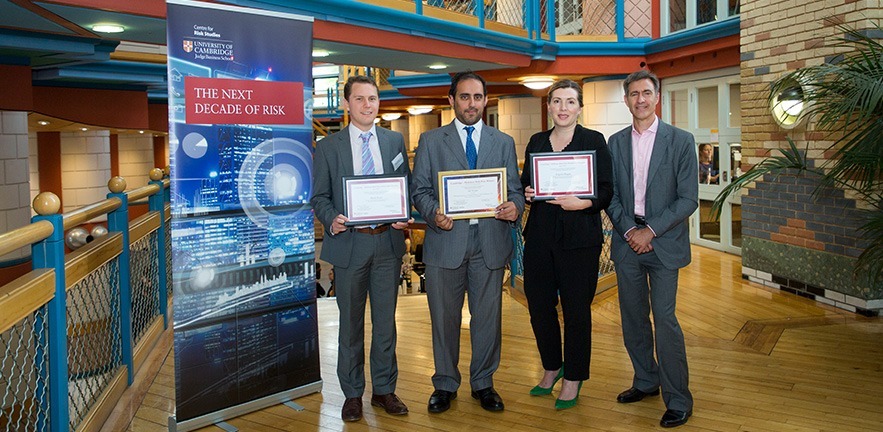Research paper on how Ethiopian Airlines managed expansion risks wins the Cambridge-McKinsey Risk Prize at the annual summit of the Centre for Risk Studies at Cambridge Judge Business School.
A research paper on how Ethiopian Airlines successfully managed the risk of expanding into Africa’s biggest airline by passenger numbers was awarded the Cambridge-McKinsey Risk Prize at the annual conference of the Centre for Risk Studies at Cambridge Judge Business School.
The prize is awarded by the Centre for Risk Studies in conjunction with consultants McKinsey & Company and is open to current masters or PhD students at the University of Cambridge. The winner of the award, which carries a £3,000 prize, was announced on 21 June at the Centre’s 10th Anniversary Summit.
The winning paper by Aly Verjee, candidate for the Master of Studies degree at the Department of Politics and International Studies (POLIS), looked a five key risks navigated by Ethiopian Airlines: burgeoning operating costs, sizeable capital acquisition costs, currency risks, political risks in emerging markets, and the risk of market downturns. The winning paper is entitled “Managing Strategic and Financial Risk in Airline Expansion: The Case of Ethiopian Airlines”.
The airline increased its revenues per kilometre (RPK) share among African airlines from 11 per cent in 2005-06 to 35 per cent in 2016-17, and now ranks 52nd globally in revenues – ahead of many better-known carriers in Europe and Asia.
“Ethiopian is one of aviation’s unsung success stories of the last decade,” the paper says. “While the aviation business remains structurally volatile and prone to downturn, and while many others have failed, Ethiopian Airlines shows that a combination of defensive, affirmative and innovative strategies can ease the costs and challenges of expansion and mitigate the underlying risks of a growth strategy. Its example suggests that risk mitigation is, and should be, central to any airline’s expansion plans.”
The other finalists for the Risk Prize were a paper called “Let’s talk about the birds and the bees: the uncomfortable conversation about biodiversity risks” by Dr Eugenie Regan, an Executive MBA participant at Cambridge Judge Business School, that offers recommendations for how businesses can address biodiversity risks; and a paper entitled “Vanilla options – The effect of commodity price risk on Madagascan vanilla farmers” by Mark Porter, a Cambridge MBA candidate, which examined how the rising price of vanilla poses risks to the crop’s farmers.
The two-day Risk Summit looked ahead to the next decade, examining topics ranging from cyber attacks to geopolitical risks to climate change. Other panels looked at such topics as disruptive digital technology, the risk of pandemics, and governance and regulatory risks.


